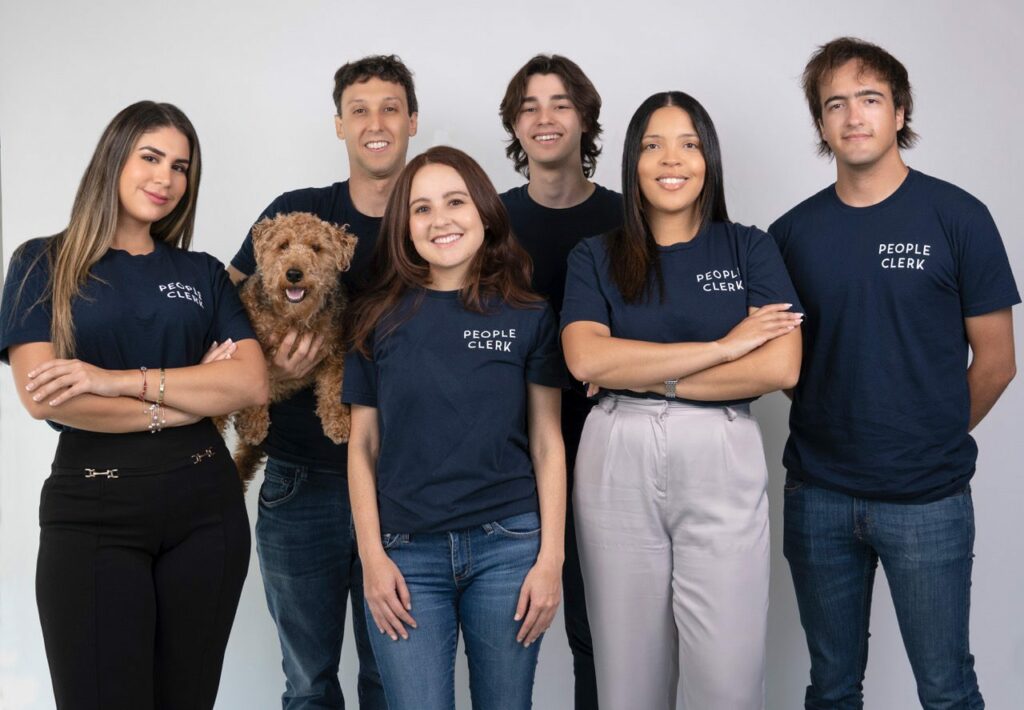By Riley Kaminer
Growing up, Camila Lopez wanted to be Erin Brockovich, the paralegal (played by Julia Roberts in the eponymous film) who helped prosecute California energy company PG&E for its role in a groundwater contamination incident.
“That movie really inspired me to go to law school,” Lopez told Refresh Miami. At law school, her goal was to work in consumer protection. “I wanted to be a plaintiff’s lawyer, helping in class action cases.”
But once she was in law school, Lopez said that she always had friends and family reaching out to her every time they had a legal problem. The issue was that the majority of these disputes were under $3,000 – things like unreturned security deposits and car accident-related insurance payments.
Lopez’s first port of call would be to connect these friends and family members with other attorneys. But more often than not, the attorneys would turn down her referral requests because the dollars attached were just too small. So Lopez began saying what would become a recurring bit of advice: “Go to small claims court.”
“It’s just like Judge Judy except in real life,” she’d tell them. Yet the reality was much trickier than that. Lopez would still get calls from her friends and family members, asking for help navigating court websites and understanding complex legalese.
Gustavo Lozano, who would eventually become Lopez’s business partner, helped Lopez properly understand what was going on here. “He kept on saying, ‘Hey, you’re taking for granted your experience as a lawyer and telling them that it’s so easy [to go to small claims court]. But for someone like me, who’s not a lawyer, it’s really hard,’” Lopez recounted.
This realization pushed Lozano and Lopez to start visiting small claims courts together in New York and California. After watching hundreds of hearings, one thing became abundantly clear: People were showing up to their hearings unprepared.
“They weren’t getting their day in front of the judge,” said Lopez, since they were showing up too disorganized. For instance, litigants would commonly show judges documentation on their phones, leaving judges confused and frustrated.
“I remember one judge looking at text messages on a phone and asking the litigant who was on the left side and who was on the right,” shared Lopez. Oftentimes, judges would end up asking the litigants to come back another day, when they were more prepared.
Lopez and Lozano (pictured above) knew there had to be a better way.
Building a tool for impact at scale
The duo sought to solve two problems for litigants. First, how to procedurally prepare for their day in court. Second, how to present their case in front of a judge.
The resulting solution is People Clerk: a digital platform that gives litigants everything they need to find success in small claims court. Through their app, users can file their lawsuit either via mail or electronically, have the other party be notified that they’ve been served, and then generate a judge-friendly evidence packet for their hearing.
People Clerk charges $149 – but if litigants lose, then they get the $149 back. The startup, which was founded in August 2020, also offers some add-on options such as having an independent attorney review their court documents and evidence and having People Clerk print all the necessary documents for them. (Lopez: “We found out that no one has printers!”)
“It can take 20 to 30 hours to figure out how to navigate the small claims court process on your own,” said Lopez. People Clerk aims to help people make it through these processes in a much shorter time. Already, they have worked with 1,000 individuals or small businesses in New York City and California. They have just opened up the waiting list for Florida.
Lopez considers People Clerk to be part of the justice tech space. “We’re empowering people on how to navigate this bureaucratic court system on their own,” she asserted. Lopez noted that many people are unable to assert their legal rights due to the prohibitively expensive costs of attorneys – or their personal lack of time or knowledge. “We’re a mission-driven company, and it’s all about helping people.
Miami a hub for growth
A Miami native who grew up attending St. Theresa School in Coral Gables, Lopez left Florida to study at Berkeley and then the Cardozo School of Law in New York. People Clerk was originally founded in California, but the company’s first hire was actually in Miami. That, along with the increasing excitement in South Florida’s tech scene, led Lopez and Lozano to move the company to Miami officially earlier this year. Last month, Lopez herself moved back to the Magic City. Currently, seven out of the startup’s 10 employees are based in Miami.
This month, People Clerk landed $100,000 in non-dilutive funding from Google’s Latino Founders Fund. But the advantages of this program extend far beyond the financials. People Clerk has also been connected with a Googler who will help advise the company (in a twist of small-world fate, it turns out that Lopez actually went to college with him). They will also receive programming and support from Google, access to free mental health therapy, and a community of fellow founders.
“This funding from Google will help us launch in other states faster, and enable us to hire more teammates,” commented Lopez. “It’s a huge honor to take part in this program – not just for the money but also for the resources.” In 2021, People Clerk also took part in a Techstars cohort.
For now, Lopez is excited to continue helping their customers win. “Filing your case is important, but what really helps you win is being prepared for the hearing,” she said. “We provide you with everything you need to be prepared – and can ship it right to your home.”

READ MORE ON REFRESH MIAMI:
- The LegalTech Fund of Fort Lauderdale announces $28.5M fund to power startups disrupting the world of law
- 5 questions with crypto legal expert Dara Tarkowski
- Meet the 7 local recipients of $100K and more from Google for Startups Latino Founders Fund
- The hottest technology in Miami? Exowatt raises $20M, launches renewable energy solution - April 22, 2024
- This Earth Day, let’s shine a spotlight onSouth Florida innovators building a greener world - April 22, 2024
- Dataplor’s $10.6M Series A will help usher in the next generation of global location intelligence - April 22, 2024





